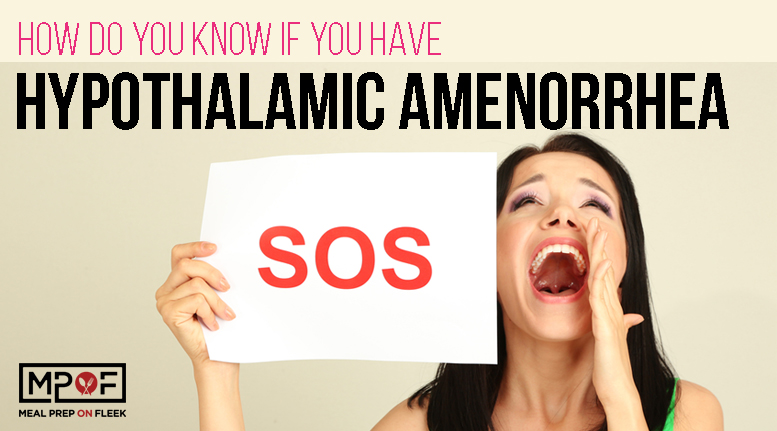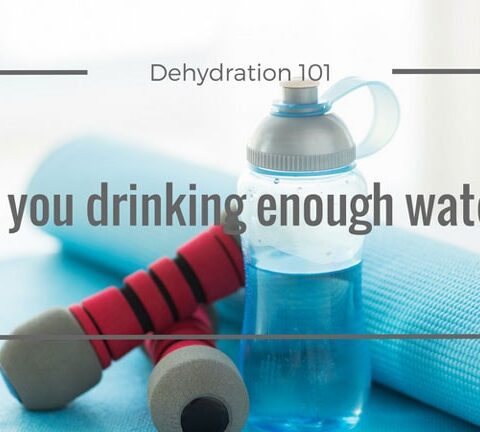Hypothalamic Amenorrhea: Are you too ‘healthy’ to have a menstrual cycle?
Too healthy? Yes - too healthy! You ensure you count your calories, strictly adhere to the restrictions of the diet you follow and exercise as if life depends on it. You are slender and fit but unable to have a regular menstrual cycle. If this is the case, you may be suffering from a condition called hypothalamic amenorrhea (HA).
What is Hypothalamic Amenorrhea
When signals in the brain get interrupted and the messages which relate to your menstrual cycle aren’t relayed to the brain, HA could be the cause. Hypothalamic amenorrhea is a condition whereby menstruation does not occur for several months. This could be an indicator of another health problem, or due to problems affecting the hypothalamus. It could also be a result of natural factors such as pregnancy and breastfeeding.
What causes Hypothalamic Amenorrhea
Poor nutrition and stress are named as the main factors which contribute to this condition. Most individuals who experience this condition may be underweight or at the lower end of the healthy BMI scale. As a result, high levels of mental or physical stress and eating disorders have been identified as the leading contributors to hypothalamic amenorrhea. Other medical conditions which contribute to this condition are:
- Sarcoidosis
- Hypothyroidism
- Psychiatric disorders
- Galactosemia
- Hyperthyroidism
Source: NIH
Diagnosis of Hypothalamic Amenorrhea
There are several methods which can be used to diagnose HA. You may seek to check your body mass index to identify if you are on the low scale of healthy or underweight. Also, consider the effects the diet you follow along with the rigorous exercise routine as they may also contribute to abnormalities with one’s menstrual cycle. There are also test which may be recommended by your doctor. These include imaging tests, lab tests, and scope tests.
- Imaging tests are performed to view the tissues of your reproductive organs as well as surrounding organs to identify any abnormalities. These images are often obtained through the use of magnetic resonance imaging (MRI), computerized tomography (CT) and ultrasounds.
- Lab tests are conducted to analyze blood samples. These tests aim at finding out how well your hormonal functions are being carried out. Additionally, if there are problems with the glands responsible for secreting the necessary hormones, that too can be revealed. This information is gained from tests such as prolactin, pregnancy, thyroid function, male-hormone, and ovary function test.
- If all else produces no answer, then a closer look is taken with a scope test. A hysteroscopy may be recommended whereby a thin lit camera is inserted vaginally into the womb to look at its insides.
Treatment for Hypothalamic Amenorrhea
The treatment of hypothalamic amenorrhea is dependent upon what causes it. If, for example, you are experiencing HA because of a hormonal imbalance, your doctor may prescribe contraceptive pills according to their hormonal content. Additionally, hormone therapy may be explored as a form of treatment in the hopes of balancing your hormones.
Medications may also be prescribed in the hopes of treating, for example, pituitary or thyroid disorders. Also, surgery may be another means of treatment, if a tumor or other growth is physically obstructing the menstrual cycle. A surgeon will cut out the abnormal growth in the hopes of restoring the normalcy of the menstrual cycle.
Yet there are lifestyle changes which have been said to also assist with the treatment of hypothalamic amenorrhea. Too little food and great exercise can cause this condition, therefore it would be best to seek a balance with rest, recreation and work. Decreasing stress levels always assists in returning normal function to bodily processes.
For more information on treating HA with improved nutrition, click here
Effects of Hypothalamic Amenorrhea on Health:
Bearing in mind that hypothalamic amenorrhea is reversible, it’s effects on health need not be endured without end. However, the lack of hormone estrogen may cause some concern as its function extends passed fertility. The lack of estrogen in the system affects organs, and tissues throughout the body.
As such, a deficiency of estrogen in premenopausal women has given rise to cardiovascular diseases, problems with bone health and an emotional roll-a-coaster of mood swings and depression. These all contribute to an overall weakening of the body’s skeletal, psychological and reproductive systems.
Can I get pregnant?
While you are experiencing HA, pregnancy will not be possible. The imbalance of hormones and gland activity will prevent your menstrual cycle from facilitating pregnancy. However, once you treat and rid yourself of hypothalamic amenorrhea, by making the necessary lifestyle changes, pregnancy will become a possibility. Additionally, there are fertility treatments which can also assist in making pregnancy possible.
What is the difference between HA and PCOS?
Although HA and PCOS both result in the absence of regular menstrual cycles, they are by no means the same. PCOS is a condition caused due to elevated male hormones (androgens) and insulin resistance. On the other hand, hypothalamic menorrhea is mainly caused due to insufficient eating and too much exercise.
How much should I eat?
Restricting calories is a definite no-no. Increasing your calorie intake is a step in the right direction. Foods rich in natural fats, like dairy and simple carbs, can greatly assist the process. You are encouraged to eat healthy portions of meals without feeling guilty.
How much should I exercise?
The bare minimum of exercise will surely facilitate prompt recovery. The less exercise you engage in, the faster your body is able to return back to how it should function. The intensity of exercise does have an impact on hormone production. Once you have allowed the body to restore its natural abilities, it is possible to return to your exercise routine. However, while you are seeking to rid yourself of hypothalamic amenorrhea, rigorous exercise will prevent your progress.
How much weight do I need to gain?
The amount of weight which you will have to gain will be dependent upon your individual BMI. If you are one who exercises too much but has no restrictions on eating, then less exercise and minimum weight gain may just do the trick!
Do you think you may have HA? What treatment suggestion was most helpful? Do you have any other tips and tricks that have been working for you? We would love to know what your personal journey has been like. Drop a comment below.







